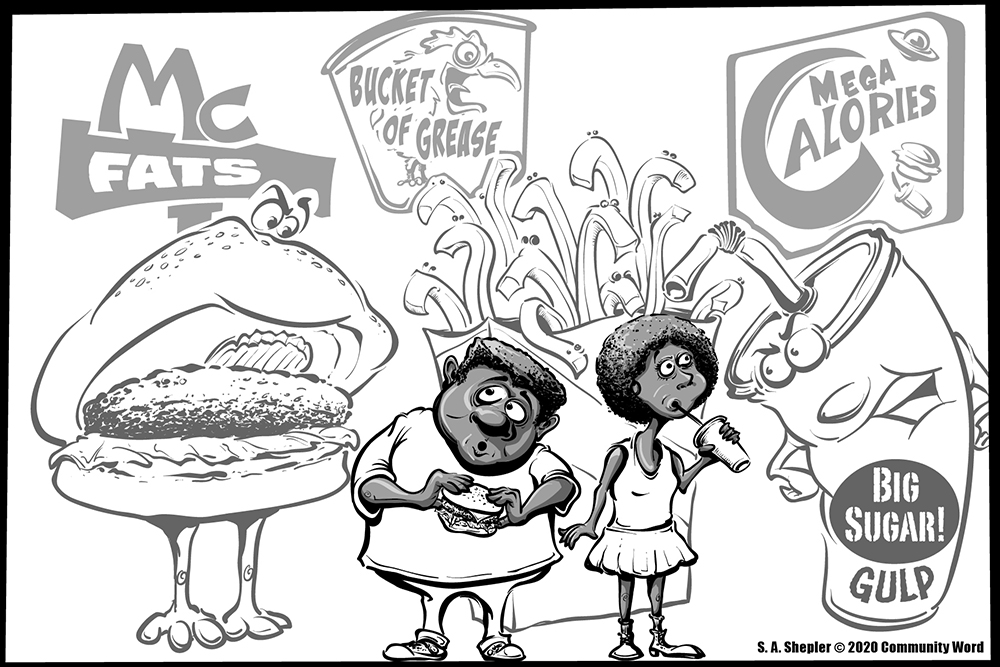Are fast food franchises a valuable mechanism for economic growth in African-American communities or a blight that spreads high blood pressure, obesity, diabetes and more?
Apparently, depending on your perspective, it can be either or it can be both.
Fast food is the source of wealth, power, despair and chronic illness.
In her book “Franchise: The Golden Arches in Black America,” author Marcia Chatelain examines the fraught history of McDonald’s and the Civil Rights Movement.
She makes the point that capitalism is not geared toward social justice and racial equality.
“Racism constrains choices and limits opportunities, from how much you earn to how long you live,” she writes, so “how exactly (did) fast food become a staple of Black diets.”
She goes back to the 1940s when brothers Maurice and Richard McDonald opened a drive-in hamburger stand. The success of the business benefitted by segregation, racial restrictions on housing, discriminatory lending policies and the growth of a highway system that dissected African American neighborhoods.
Ray Kroc, a milkshake machine salesman, bought control from the brothers in 1961. It was a time when McDonald’s and other roadside restaurants refused service to Blacks in the south or forced then to place orders at separate windows.
Chatelain writes, “In the 1960s, after a century of protracted growth since the abolition of slavery, Martin Luther King Jr. identified economic justice –– not business development –– as his fuller, more vivid dream for the nation’s future.”
The author goes on to quote Ralph Abernathy, King’s successor at the Southern Christian Leadership Conference, saying, “We don’t want rich individuals; we want rich communities.
“I don’t believe in black capitalism. I believe in black socialism.”
The unrest following the assassination of Martin Luther King Jr. in 1968 led many white franchisees and their employees to abandon their restaurants. The corporation eventually saw this as an opportunity to recruit Black franchise owners.
But the analysis gets sticky when corporations deliberated and skillfully publicize their “charitable giving” to African American organizations that rely on donations in order to achieve their mission of justice and equality. For example, when the choice is between a McDonald’s or no McDonald’s and no youth program.
And the Black franchisee owners were frequently in poor communities with added operational costs.
Chatelain writes that after a particularly contention period between McDonald’s and African American communities, “The corporation hired Black consultants to assist in redefining McDonald’s corporate culture, from former Freedom Rider, and Southern Christian Leadership Conference member, civil rights legend C.T. Vivian, to future Secretary of Commerce Ron Brown. Brown worked with McDonald’s in 1979 to assess how Blacks could be part of what was described as a sometimes renegade and ‘wild and crazy’ company.”
In 2000, Black-owned McDonald’s franchisees had total sales of $2 billion.
Despite his belief not in Black capitalism but in Black socialism, Abernathy accepted a $1,300 donation for the Southern Christian Leadership Council from McDonald’s. The author describes that as the first of many donations that increasingly yoked “King’s dream to Kroc’s dream, despite the two men’s hopes for the world being miles apart.”
Chatelain is not critical of Abernathy for this. She uses it as an example that the private sector cannot be relied upon to provide public needs and services with justice and equality. That’s the most basic and essential role of government.
“History encourages us to be more compassionate toward individuals navigating few choices, and history cautions us to be far more critical of the institutions and structures that have the power to take choices away,” she writes.
“A public that decries fast food as a matter of bad choices is a public that is ignorant to the fact that the meeting of racism and capitalism can only produce demeaning and uncomfortable options,” she writes, calling the phenomenon “disaster capitalism (that) feeds on destitution and chaos.”
Direct cash aid to the poor, oversight for the police department, good jobs paying more than minimum wage, access to grocery stores, affordable housing, good public transportation and excellent public schools may be more powerful tools for social justice than capitalism.

